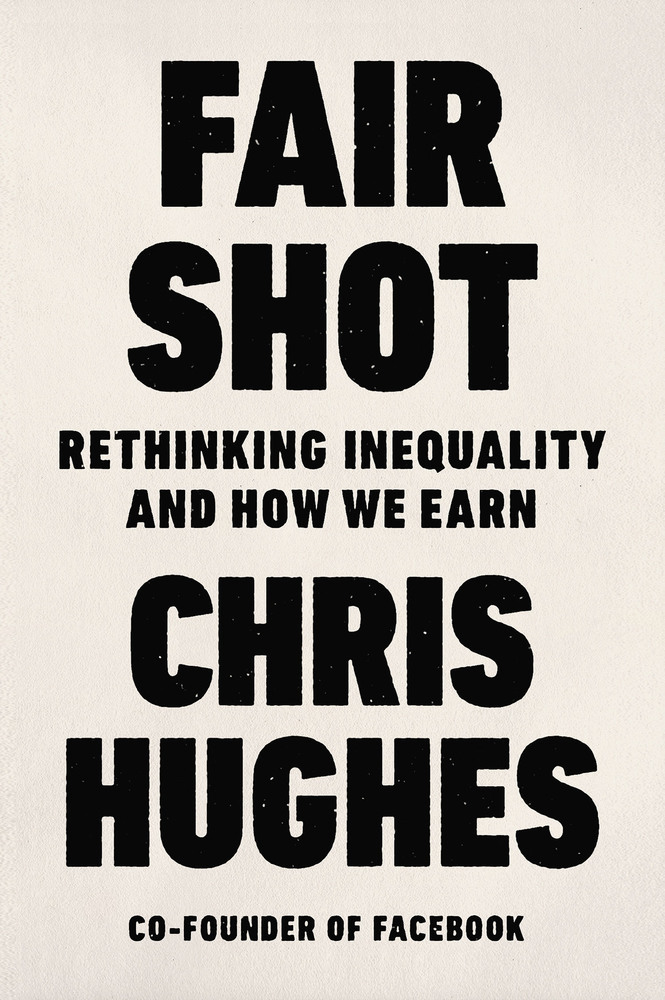What do you think?
Rate this book


224 pages, Hardcover
First published January 1, 2018
A Princeton study found that of all the jobs created between 2005 and 2015, 94 percent of them were contract or temporary, meaning virtually every job we created in the last decade was piecemeal and the income was unreliable. (46)
Saying people get lucky is not a denial that they work hard and deserve positive outcomes. It is a way of acknowledging that in a winner-take-all economy, small chance encounters—like who you sit next to at a dinner party or who your college roommate is—have a more significant impact than they have ever had before. In some cases, the collections of these small differences can add up to create immense fortunes. […] But luck doesn’t just happen. We have created an economy dominated by forces that reward luck in an outsized way. Some of these changes might be desirable and some not, but they are all the result of political decisions that we purposefully make as a society. There is no invisible hand creating a winner-take-all economy in which luck takes on this disproportionate role. We are its authors and enablers. (39-40)
We don’t need to go back in time and “make America great again” by re-creating a world that provided economic mobility to a select group—we need to build a new economic order that empowers all Americans to get ahead. (88)
The guaranteed income would create a floor below which people could not fall, a reliable foundation for people to build on. It wouldn’t be enough money on its own for anyone to live on. It would supplement income from other sources like formal labor, a job in the gig economy, informal work, or other government benefits. Everyone who contributes to their community would earn the income, even if they’re not making money in the formal economy. That would include mothers and fathers of young kids, adults caring for aging parents, and college students. (92)
[Martin Luther King Jr.] put the emphasis on dignity. Other activists and thinkers on the left and right have made the case that without financial security, no one can be truly free. Belgian philosopher Philippe Van Parijs has been one of the most visible and ardent advocates for the idea that we cannot imagine a society with true freedom unless all its members have the ability to invest in themselves and make their own decisions. Friedrich Hayek and Milton Friedman made a similar case. Many of the these twentieth-century thinkers followed in the tradition of writers like Thomas Paine and Thomas More. For centuries, philosophers have argued that only a guaranteed income can grant every individual the freedom that civilization is meant to provide. (132-133)
[E]vidence from existing American programs shows that a little bit of cash doesn’t cause people to drop out of the workforce, but instead helps them find work. If people have financial stability from a guaranteed income, they can choose work that’s fulfilling, purpose-driven, and a match for their skills. (109)
The problem is that many people still do not have the money to be able to take advantage of the education opportunities that would help them. You can teach a man to fish all day, but if he can’t afford to buy a rod, reel, and bait, what good will it do? (174)
The people who would benefit most from a guaranteed income are those who have historically been overlooked or excluded from economic development programs. Families in the lower tier of income distribution in our country are disproportionately made up of people of color. These families were also often systematically excluded from educational and financial support structures in the past. Many people of color have organized for the idea historically. As Anne Price, the president of the Insight Center, writes, “It’s abundantly clear that a basic income program has much greater potential than is captured in the mainstream conversations about UBI—it holds the promise of addressing, head on, some of our most deeply entrenched racial and economic inequalities.” A guaranteed income targeted to households making less than $50,000 would boost the incomes of African American and Latino people in particular. (170)
The natural drift of capitalism toward inequality requires a constant vigilance to make the market work for everyone, not just for the rich. That’s important because most of us want a world with basic fairness, and it’s also important because capitalism will break down if wealth continues to concentrate at the rate that it has in recent years. (182)
“There is nothing new about poverty,” [Martin Luther King Jr.] declared. “What is new is that we now have the techniques and the resources to get rid of poverty. The real question is whether we have the will.” (144)